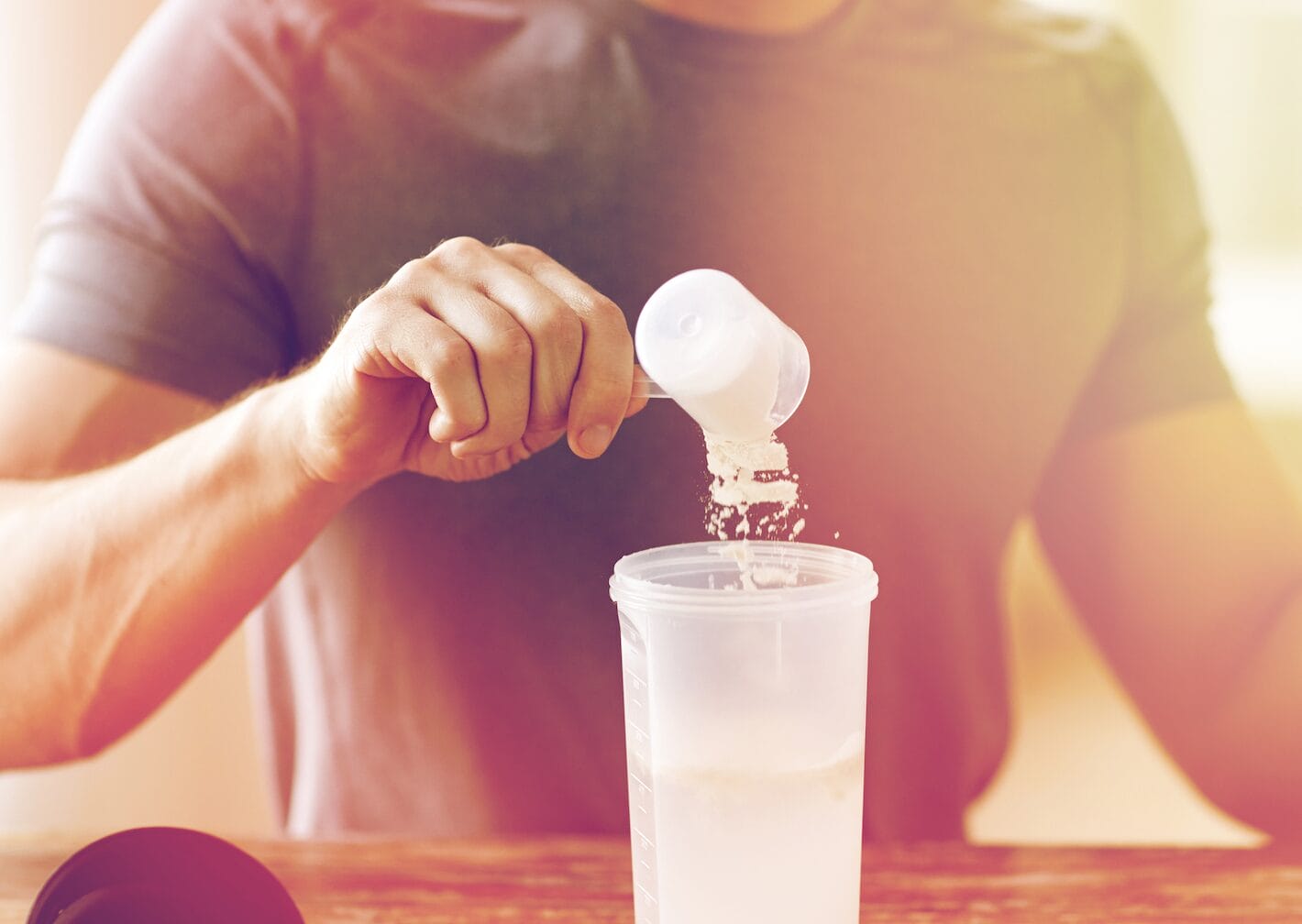
It’s well known that eating right and exercising during pregnancy is essential for the health of both mother and child.
But did you know that what you eat and how active you are can also affect your baby’s risk of developing obesity later in life?
While it might be difficult to think about long-term effects when dealing with morning sickness and pregnancy, it’s important to remember that your choices now can have a lasting impact.
Recently, the hype of pre-workouts has taken over the internet, with people of all shapes, sizes, and backgrounds swearing for their results.
Pre-workout supplements are designed to help you have more energy, focus, and endurance during your workout.
Pregnant women often ask whether it is okay to take pre-workouts, and the answer is it depends. If you are training during pregnancy and want an extra boost in your performance, you might take a high-quality pre workout powder.
But, it is still important to consult your gynaecologist before starting pre-workout supplements.
This article will tell you about pre-workout supplements’ functions, ingredients, how they benefit you, and whether or not you should take them during pregnancy.
Understanding Functions and Benefits of Pre-workouts
Pre-workouts are supplements that are designed to improve your performance in the gym. They typically contain ingredients like caffeine, Creatine, and Beta-Alanine, which have all been shown to improve exercise performance.
Pre-workout supplements are designed to help you make the most of your time in the gym. You can achieve your fitness goals more quickly and effectively by providing your body with the nutrients it needs to perform at its best.
If you are looking for a way to improve your workouts and get the most out of your time in the gym, then a pre-workout supplement may be right for you.
However, choosing a suitable supplement for your individual needs and goals is essential.
Speak with a qualified healthcare professional to learn more about pre-workout supplements and how they can help you achieve your fitness goals.
The best time to have a pre-workout supplement is about 30-45 minutes before you start your workout.
This will give your body time to absorb the nutrients and put them to use. You can take pre-workouts in powder form, capsule form, or as a drink mix.
If you are new to pre-workout supplements, start with a low dose and increase it gradually over time. This will help you gauge your tolerance and avoid any unwanted side effects.
And be sure to drink plenty of water when taking a pre-workout supplement, as they can cause dehydration if not used properly.
Benefits of Pre-workout Supplements
You hit the gym hard, but are you getting the most out of your workout? Adding a pre-workout supplement to your routine can help you take your fitness to the next level.
Here are four benefits of pre-workouts that show why they might be worth the investment.
Increased Energy and Focus
If you’re feeling sluggish at the gym, a pre-workout can give you the boost you need to power through your workout. The key ingredients in most pre-workouts — caffeine, beta-alanine, and Creatine — have all been shown to increase energy and focus.
So if you struggle to stay motivated during your workouts, a pre-workout may be just what you need.
Improved Muscle Endurance
Pre-workouts can also help you push your muscles to their limits. The key ingredient here is beta-alanine, which improves muscle endurance.
This means you’ll be able to lift heavier weights and do more reps before your muscles start to fatigue.
If you’re looking to build strength and muscle, a pre-workout supplement may help you get there faster.
Enhanced Muscle Recovery
In addition to helping you work out harder, pre-workouts can also help you recover from your workouts faster. Creatine, one of the most popular ingredients in pre-workouts, has been shown to speed up muscle recovery.
So if you want to minimize soreness and maximize your gains, a pre-workout supplement can help you reach your goals.
Better Overall Fitness
Adding a pre-workout to your routine can also help you improve your overall fitness.
One study showed that people who took a pre-workout supplement had better cardiorespiratory fitness than those who didn’t.
So, if you want to improve your overall health and fitness, a pre-workout may be just what you need.

Pre-Workouts and Pregnancy
It is generally safe to take pre-workouts during pregnancy if you are engaged in long training hours.
However, a few things to consider when choosing a pre-workout supplement include ingredients, caffeine content, and other stimulants.
Caffeine
Caffeine is a stimulant that can increase heart rate and blood pressure and it’s important to limit caffeine intake during pregnancy.
Some studies have shown that moderate caffeine intake (200-300 mg per day) is safe during pregnancy, but it is best to avoid excessive caffeine consumption.
Many pre-workout supplements contain large amounts of caffeine, so checking the label before taking one is essential.
If you are pregnant, it is best to limit your caffeine intake to 200 mg per day.
Other Ingredients
The ingredients in pre-workout supplements can vary widely. Some contain only natural ingredients, while others may contain synthetic or banned substances.
It is essential to check the label of any pre-workout supplement before taking it and avoid any that contain synthetic ingredients or banned substances.
Stimulants
In addition to caffeine, some pre-workouts may contain other stimulants such as guarana, Yohimbe, or synephrine.
These substances can have side effects such as increased heart rate and blood pressure and should be avoided during pregnancy.
What Ingredients to Look For?
Pre-workouts contain several ingredients. Let’s take a look at all of them and see how they affect you during pregnancy:
Creatine Monohydrate
Like most people, you probably think of creatine monohydrate as a supplement for bodybuilders and athletes, but what you may not know is that this powerful compound can also be helpful for pregnant women.
Creatine monohydrate is often added to pre-workout supplements because it has been shown to improve exercise performance.
But its benefits go beyond the gym.
Creatine has also been shown to help with pregnancy-related fatigue and improve cognitive function.
So, if you’re pregnant and looking for a natural way to boost your energy levels, consider adding a creatine supplement to your pre-workout routine.
You might find that it makes a world of difference.
L-citrulline
L-Citrulline is a non-essential amino acid that is primarily found in watermelons.
It’s often used as a pre-workout supplement due to its ability to improve blood flow and reduce fatigue. Apart from that, L-citrulline can also help relieve muscle soreness.
L-citrulline is also helpful in generating nitric oxide in the body.
Nitric oxide is responsible for the arteries’ relaxation, which helps improve blood flow and ensure the smooth delivery of nutrients and oxygen to the muscles.
L-citrulline has also been shown to be effective in reducing the symptoms of pregnancy-related hypertension (pre-eclampsia).
So, given its potential benefits, L-citrulline may be a helpful supplement for pregnant women looking to improve their workout performance and reduce pregnancy-related fatigue.
L-tyrosine
L-tyrosine is an amino acid that plays a role in producing neurotransmitters such as dopamine and norepinephrine.
These neurotransmitters are essential for regulating mood and energy levels. L-tyrosine has been shown to improve cognitive function and reduce stress levels.
The role of L-tyrosine in pregnancy is still unclear.
Still, research has shown that supplementation with L-tyrosine can have a significant effect on enhancing the cognitive function of the brain.
That is why you might have supplementation of L-tyrosine in moderate amounts.
However, it is always best to take the doctor’s advice during pregnancy. Consult all the possible risk factors with your doctors and find out what works best for your health.
Betaine Anhydrous
Betaine Anhydrous is a common ingredient in pre-workout supplements.
It is derived from sugar beets and is used to help improve athletic performance. Betaine has increased power output, endurance, and muscle growth and it can also help reduce body fat.
During pregnancy, betaine can support the growing baby.
It can also help improve maternal circulation and reduce inflammation. According to research, supplementation with betaine improved the placental response to hyperglycemia.
In addition to that, it has been proved that a betaine-rich diet can have a significant effect on lowering the risk of CVD.
While betaine is generally safe, it is essential to consult a healthcare provider before taking any supplements during pregnancy.
This is especially important if you have any underlying health conditions or are taking medications because betaine can interact with some medications and may not be safe for everyone.
Beta-alanine
Beta-alanine is a naturally occurring amino acid often used as a pre-workout supplement.
It’s actually an amino acid that the liver produces and is one of the few amino acids that can cross the blood-brain barrier, making it a valuable asset for athletes and bodybuilders.
The benefits of Beta-alanine supplementation during pregnancy are still being researched, however, some studies have shown that Beta-alanine can help improve athletic performance and reduce fatigue.
It is thought to help improve exercise performance and increase muscle mass.
However, there is limited research on the safety of beta-alanine during pregnancy.
Some experts believe that it may be safe to take beta-alanine supplements during pregnancy, but more research is needed to confirm this.
If you are pregnant and considering taking beta-alanine supplements, speak to your healthcare provider first.
Taurine
Taurine is an amino acid and a popular ingredient in pre-workout supplements.
It improves exercise performance by increasing blood flow and decreasing inflammation. It has numerous functions, including working on brain development and improving endothelial function.
During pregnancy, taurine can be beneficial in preventing preeclampsia, a condition characterized by high blood pressure and protein in the urine.
Pre-eclampsia can be dangerous for both the mother and baby, so it’s essential to take steps to prevent it.
Taurine supplementation during pregnancy can also help reduce the risk of cerebral palsy.
It can have a significant effect on the fetus’s growth and can affect the weight and height of newborns.
Arginine
Arginine is an amino acid that has a variety of functions in the body.
It is a precursor to nitric oxide, a molecule that helps relax blood vessels and increase blood flow. Arginine also helps remove ammonia from the body and heal wounds.
Arginine is a critical component that pregnant women need to improve neonatal outcomes.
According to the research, women with a history of failed pregnancies or at risk of developing preeclampsia or chronic hypertension should take arginine supplements.
Arginine is beneficial in conditions like oligohydramnios which can reduce the amniotic fluid levels in the sac.
With the supplementation of arginine, there is a significant improvement in the volume of amniotic fluid, which helps in the maturation of fetal organs.
Caffeine
Caffeine is the world’s most widely consumed psychoactive substance.
It is found in coffee, tea, soft drinks, chocolate, and energy drinks, but it’s also a common ingredient in pre-workout supplements.
It works by stimulating the central nervous system and can increase alertness and improve physical performance, focus and concentration.
It’s essential to be aware that caffeine can cross the placenta, so it is advisable to limit intake during pregnancy.
According to research, it can significantly affect embryo growth and development, leading to pregnancy failures and producing cardiometabolic defects in babies.
Caffeine can also increase your baby’s heart rate and cause dehydration and other problems. So, if you’re pregnant and looking for a safe pre-workout supplement, it’s a good idea to keep a close eye on those caffeine levels.
Is It Safe To Use Pre-workouts During Pregnancy?
The simple answer is yes, pre-workouts can be safe in pregnancy.
Pre-workouts can be a great way to help you stay energized and motivated during pregnancy, as long as you choose the right product and listen to your body.
I always recommend that you speak with your doctor before starting any new supplement or workout routine, but pre-workouts pose no risks to you or your baby when used as directed.
Taking a pre-workout might help you increase your energy and stamina during your workouts, which can be helpful during pregnancy.
If you decide to take a pre-workout during pregnancy, choose one specifically designed for pregnant women.
These products will have lower doses of caffeine and other safe ingredients for pregnant women.
Drink plenty of water throughout your workout to stay hydrated and listen to your body. If you feel dizzy or lightheaded, stop your workout and rest.
FAQS
Can I take pre-workout supplements if I’m pregnant?
While some ingredients in pre-workout supplements are generally considered safe for pregnancy, every woman’s situation is different.
If you’re considering taking a pre-workout supplement while pregnant, you must talk to your doctor first.
They can help you weigh the risks and benefits and make the best decision for you and your baby.
Are there any natural alternatives to pre-workout supplements?
There are a few options if you’re looking for a natural alternative to pre-workout supplements. These include:
● Green tea: Green tea contains caffeine, but it also has other beneficial compounds like catechins.
● Coconut water: Coconut water is a good source of electrolytes and can help you stay hydrated during your workout.
● Beet juice: Beet juice is a natural source of nitrates, which can help improve blood flow and oxygenation during exercise.
What are the risks of taking pre-workout supplements while pregnant?
While some risks are associated with taking pre-workout supplements during pregnancy, the overall risk is generally considered low.
However, it’s essential to talk to your doctor before taking any supplement, especially if you’re pregnant.
Can I take pre-workout supplements while breastfeeding?
While some ingredients in pre-workout supplements are generally considered safe for breastfeeding, every individual’s body may react differently to pre-workout ingredients.
If you’re considering taking a pre-workout supplement while breastfeeding, you must talk to your doctor first.
Final Words
Whether to use or not use pre-workouts during pregnancy largely depends on your health condition and nutritional status.
If you eat a meal 30 mins – 1 hour before exercise, you might not need a pre-workout.
You also have to cut down on pre-workouts if you have complications in pregnancy or take any medications.
Overall, most pre-workout supplements are generally safe to use during pregnancy, but you should aways consult your doctor before starting one.


